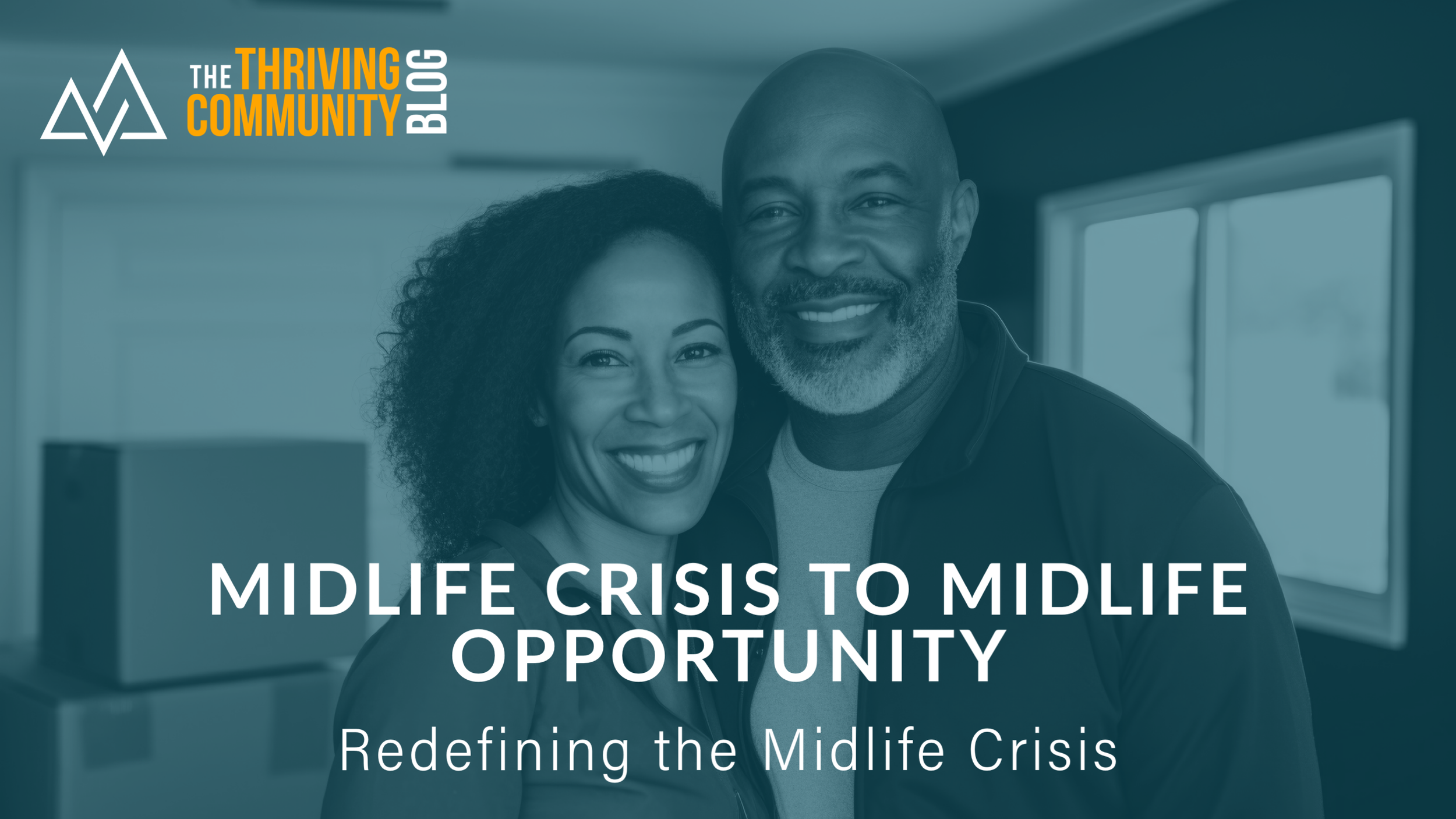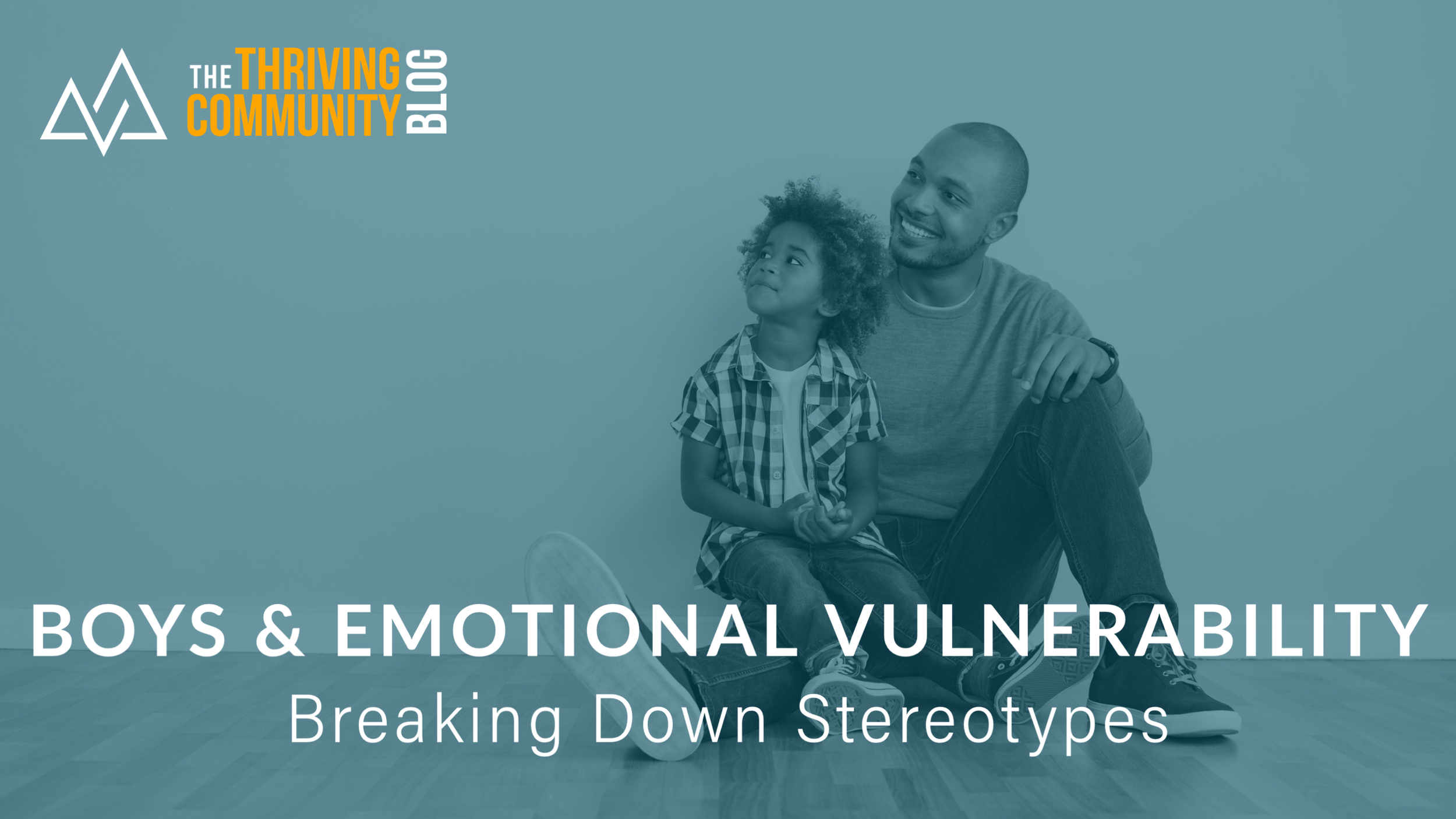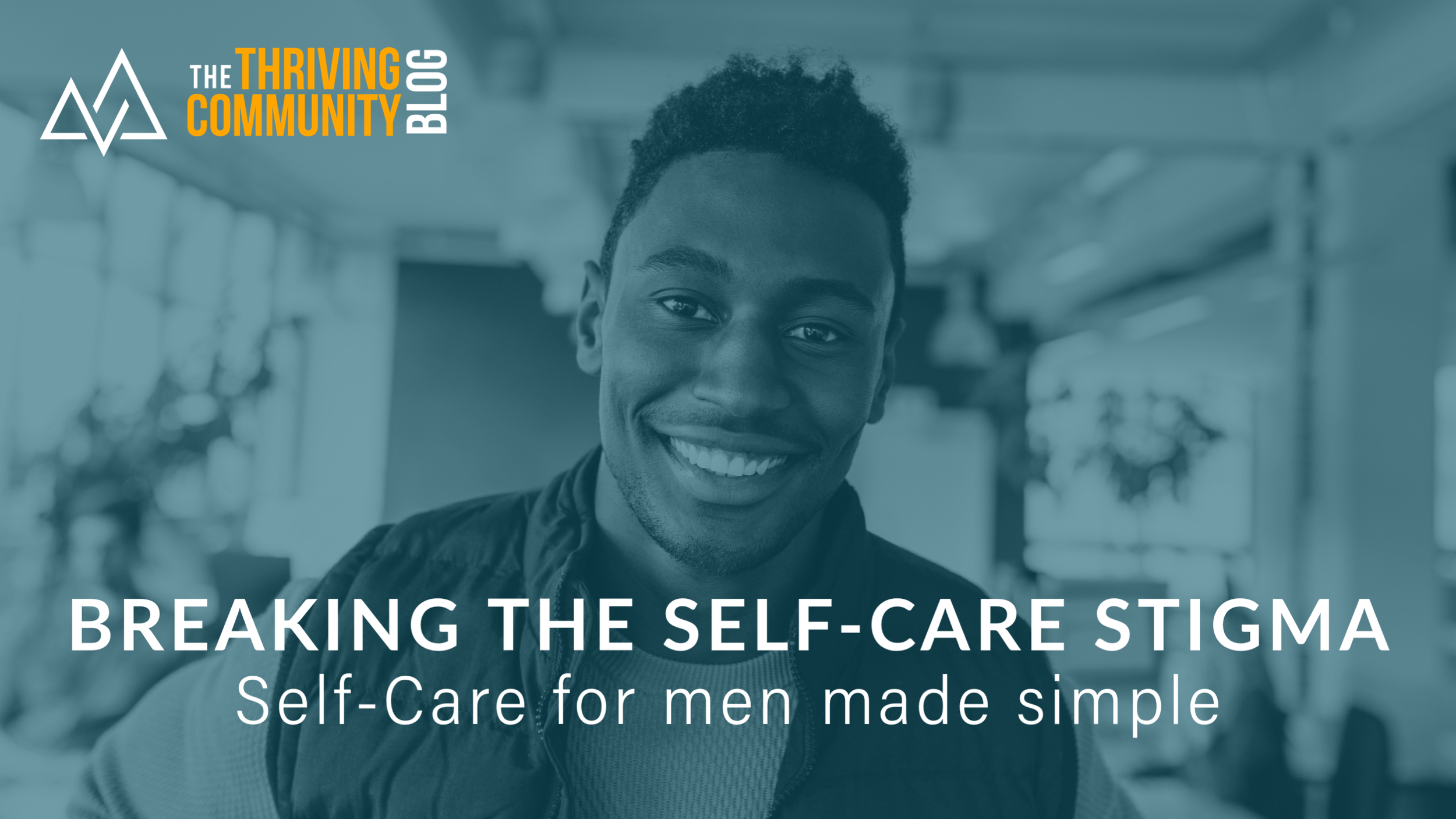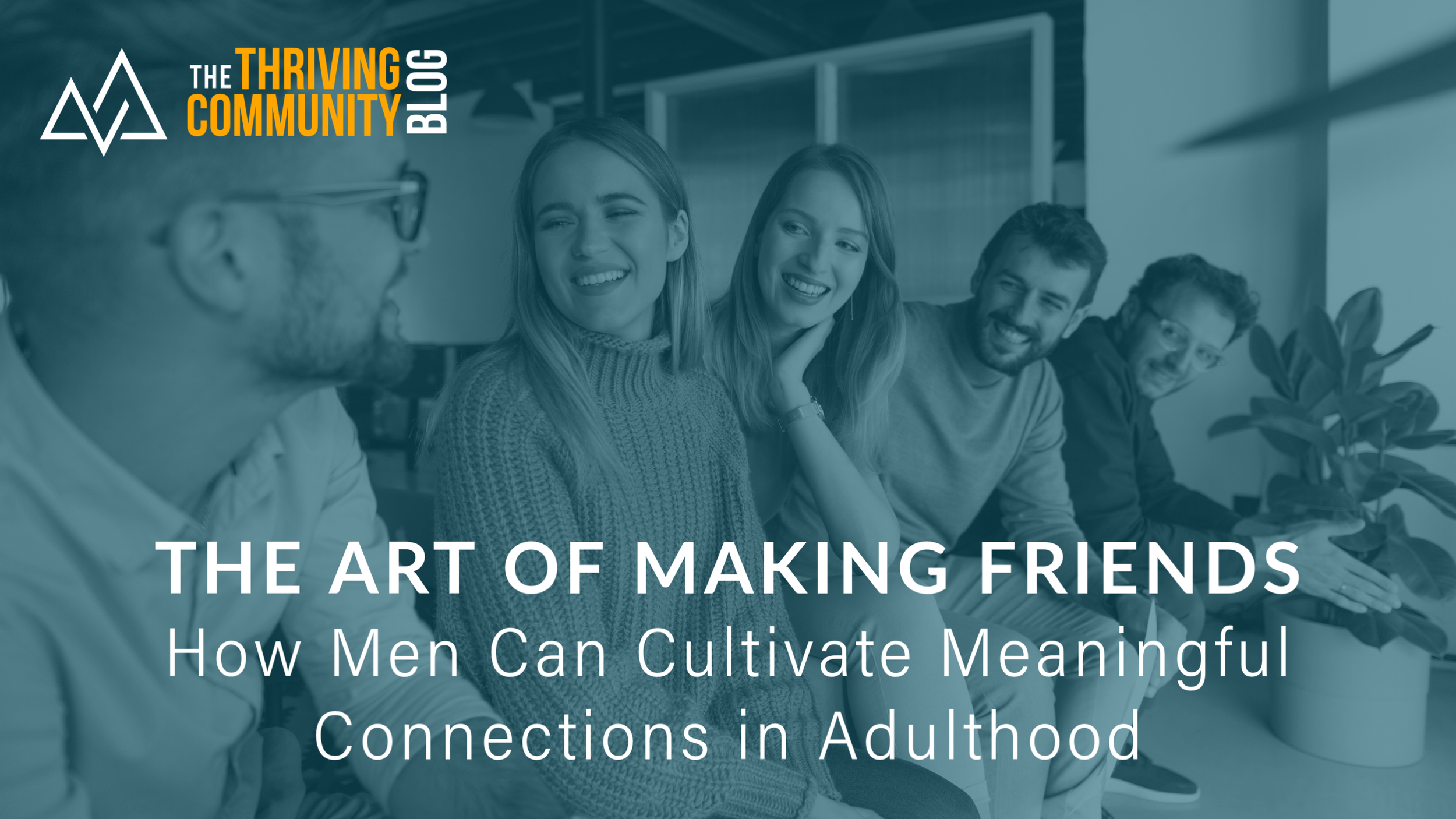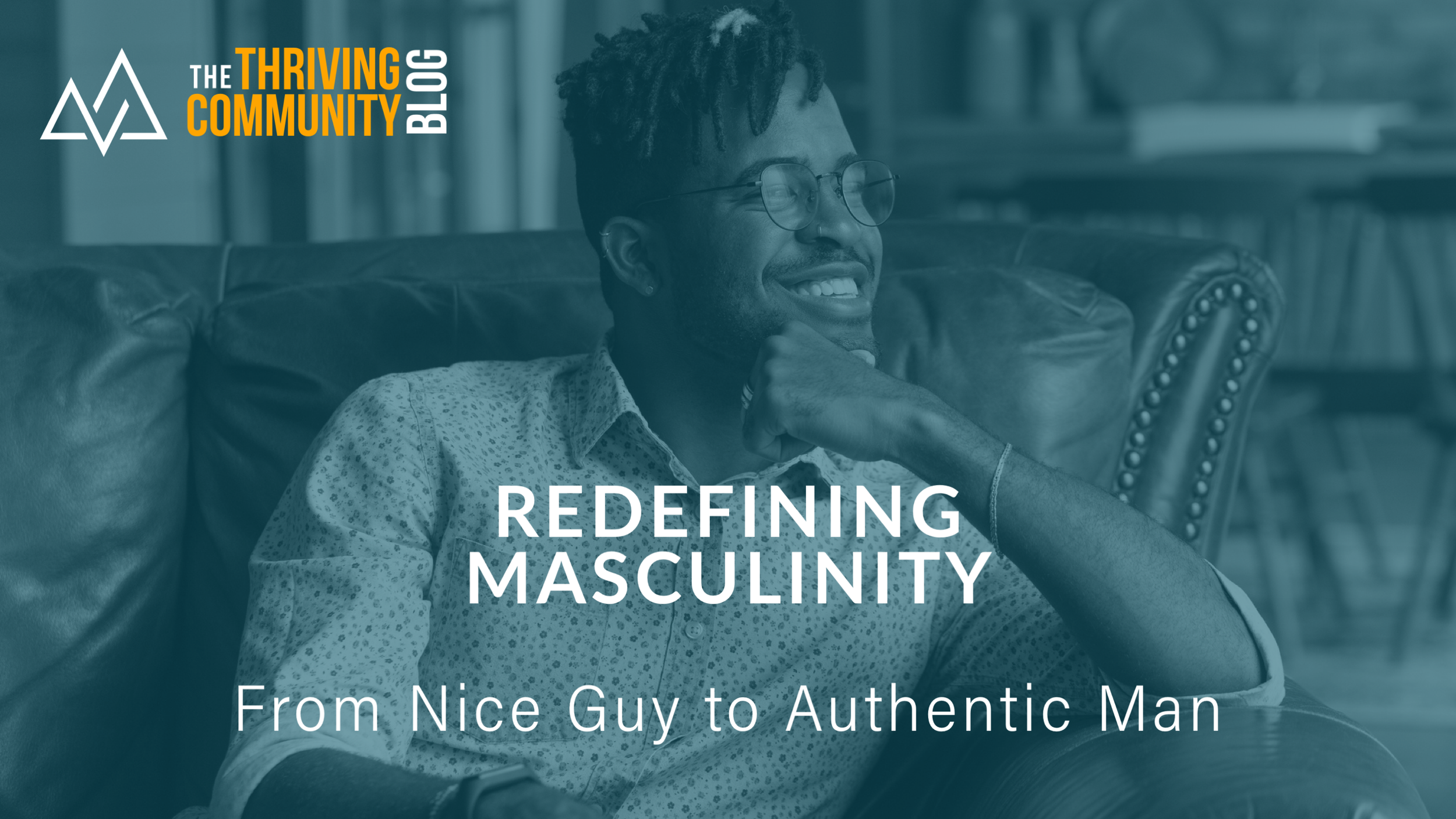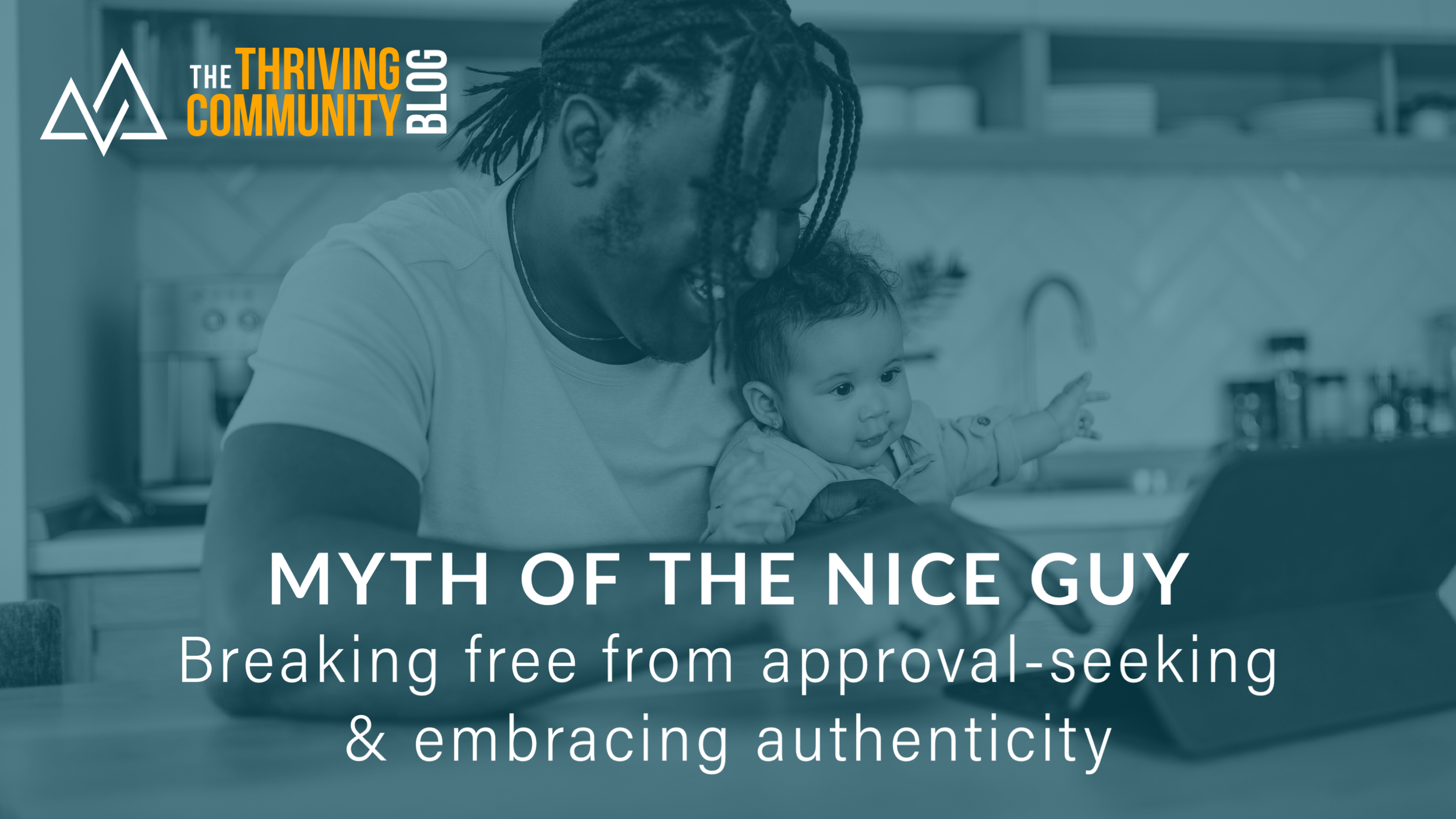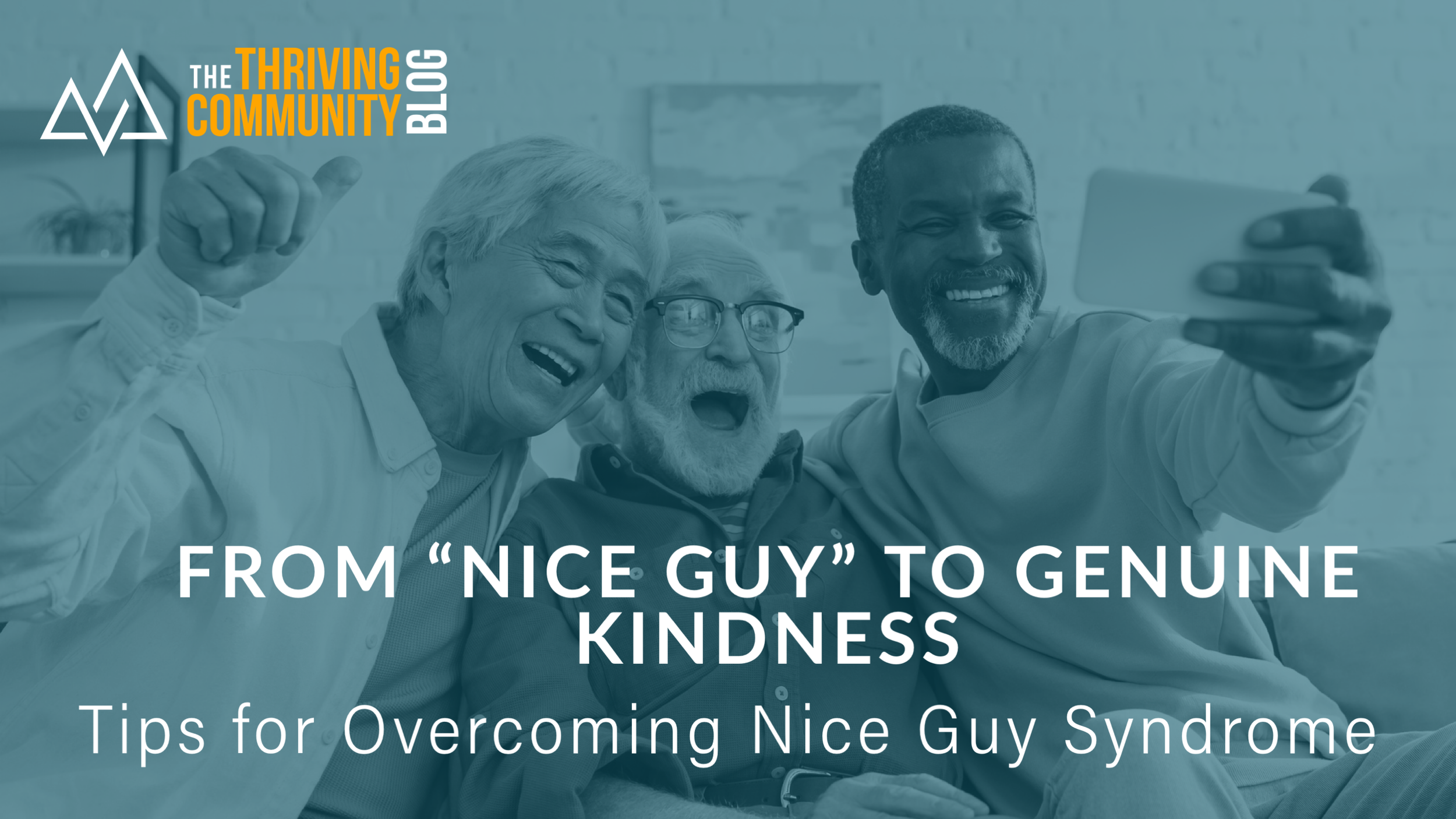
the Thriving Community
Cracking the Coping Code: Why Trying Harder Won’t Fix It
Stuck in a cycle of bad habits, knowing they’re not helping but doing them anyway? You’re not alone. In this episode of the Authentic Men’s Group Podcast, AMG coach and licensed therapist Brock Frizzell, AMG coach Stephen Nichols, and AMG coach and licensed therapist Reid Horn unpack why we turn to unhealthy coping mechanisms—and why sheer willpower won’t fix them.
Discover how to shift from short-term coping to long-term solutions by identifying triggers, understanding the needs behind your habits, and replacing them with healthier alternatives. If you’re ready to stop just managing stress and start changing the conditions that create it, listen now.
From Nice to Authentic: Why Being Too Nice is Ruining Your Relationships
Being "too nice" might seem like the key to a happy relationship, but it often leads to hiding your true self. Real connection isn’t built on avoiding conflict or always agreeing—it’s built on honesty and authenticity. True intimacy comes from showing up fully and embracing both your needs and your partner’s, even when it’s uncomfortable.
Embrace Your Shadow (Part 2): Why Shadow Work Matters for Personal Growth (AMG Podcast)
What if the parts of yourself you’ve been avoiding hold the key to living authentically? In this episode of the Authentic Men’s Group podcast, we dive into the concept of the ‘shadow’—those hidden aspects of our personality we often deny or suppress. We explore how the shadow shapes your relationships, behaviors, and even your triggers. Most importantly, we share practical steps to face your shadow with curiosity and compassion so you can unlock greater self-awareness and build deeper connections. It’s not about perfection—it’s about progress. Tune in and start embracing your whole self today.
Embrace Your Shadow: The Secret to Unlocking Your Authentic Self (AMG Podcast)
What if the parts of yourself you’ve been avoiding hold the key to living authentically? In this episode of the Authentic Men’s Group podcast, we dive into the concept of the ‘shadow’—those hidden aspects of our personality we often deny or suppress. We explore how the shadow shapes your relationships, behaviors, and even your triggers. Most importantly, we share practical steps to face your shadow with curiosity and compassion so you can unlock greater self-awareness and build deeper connections. It’s not about perfection—it’s about progress. Tune in and start embracing your whole self today.
Mapping Masculinity: Join the Journey to Your Authentic Masculinity
Explore the transformative power of authentic masculinity with the Mapping Masculinity Group. This blog invites men to break free from societal expectations and embark on a journey toward genuine self-expression. Discover tools and insights that challenge outdated notions of masculinity, fostering emotional vulnerability and promoting personal growth. Whether you're struggling with identity, relationships, anger porn, or sex in your relationship, this group offers a supportive environment to navigate your path to authenticity. Discuss healthy relationships, emotional intelligence, shadow work, and more. Join us in redefining what masculinity means for you and how you can start living the life you really want.
Midlife Crisis To Midlife Opportunity: Redefining the Midlife Crisis
Unlock the secrets to transforming a midlife crisis into a catalyst for growth.
Ever thought a midlife crisis was just about sports cars and unexpected life twists? Think again. Dive deep into the true essence of a midlife crisis—it's more than a stereotype; it's a chance for profound personal growth. From understanding the triggers to embracing the opportunities for reinvention, our latest blog post sheds light on how this pivotal period can significantly alter the course of your life.
Discover how to turn what many dread into a powerful moment of transformation and start on a path to the authentic life you've always wanted. Are you ready to explore and embrace the possibilities? Read more and redefine what a midlife crisis means for you.
From Stigma to Strength: Redefining Crying
Victor Hugo wrote in Les Misérables, “Those who do not weep, do not see.” This captures the essence of crying as not just a release but a means of truly seeing and understanding our emotions, ourselves, and the world around us. From our first moments as infants, tears are our primary form of expression, conveying needs and emotions from discomfort to joy. However, as we grow, societal stigmas and personal experiences often teach us to view vulnerability and crying as signs of weakness.
But what if we changed our perspective on tears? Rather than viewing them as a weakness, we could see them as a testament to our humanity, a bridge to deeper understanding and connection. Reflect on the times when crying brought you relief or deepened a relationship.
How might embracing tears more openly change your life? What would it feel like to let those emotions flow freely without fear of judgment? As we delve into the significance of emotional vulnerability, let's consider how allowing ourselves to cry can not only enrich our connections with others but also enhance our personal growth.
Boys and Emotional Vulnerability: Breaking Down Stereotypes
In today's society, there exists a common misconception that boys should hide their emotions to conform to traditional masculine norms. This notion perpetuates the harmful stereotype that boys should be stoic and unemotional, leading to a culture of emotional repression among males. However, it is essential to recognize that boys are just as emotionally complex as girls and deserve the opportunity to express their feelings openly and authentically.
Breaking the Stigma: Self-Care for Men Made Simple
Self-care is a term thrown around a lot these days, but what does it mean? It's not just about pampering yourself with a spa day or treating yourself to a fancy dinner (though those things are nice, too!). Self-care is about taking care of yourself in every aspect of your life: socially, physically, emotionally, intellectually, and spiritually. It's like giving yourself a big ol' hug from the inside out! And let's be honest, it's not always easy—especially for men. There's this weird stigma around self-care like it's something only women do or that it's somehow selfish. But here's the thing: men need self-care just as much as anyone else, if not more. They face unique challenges and are often more susceptible to certain health risks. So, guys, it's time to break the stigma and embrace self-care like the bosses you are!
The Art of Making Friends: How Men Can Cultivate Meaningful Connections in Adulthood
In today's fast-paced world, having a solid support network of friends is more important than ever for our overall well-being. However, it's common for many men to feel lonely and struggle to establish meaningful connections as they age. Research has highlighted that men, mainly as they grow older, often struggle to form new friendships. But here's the thing: with a bit of effort and a willingness to step outside our comfort zones, it's possible to nurture new friendships and tackle those feelings of isolation head-on. In this article, we're diving deep into practical strategies tailored explicitly for making friends after your 20s. We'll spotlight the significance of genuine connection, the power of shared interests, and actionable steps you can take to expand your social circle and enrich your life with meaningful relationships. So, if you're ready to break free from the isolation and build genuine connections, you're in the right place!
Redefining Masculinity: From Nice Guy to Authentic Man
Today, we're diving headfirst into the intriguing world of Nice Guy Syndrome (NGS) and uncovering the secrets to breaking free from its limitations. Buckle up as we navigate the characteristics of NGS, from its subtle nuances to its profound impact on personal relationships. But that's not all – we'll also dive deep into personal recovery experiences, sharing real-life stories of individuals who have triumphed over NGS and emerged more robust and authentic than ever. And finally, we'll unveil the attributes of an Authentic Man, guiding you toward a path of genuine self-expression and empowerment. So grab a seat and embark on this transformative journey together!
The Myth of the Nice Guy: Breaking Free from Approval-Seeking and Embracing Authenticity
In a world where societal expectations and stereotypes often dictate our behavior, a breed of men is known as the "Nice Guys." Coined from the amazing work by Dr. Robert Glover, these individuals have been conditioned to prioritize the approval of others above all else. They strive to maintain a pleasing image, always aiming to do things "right" and make everyone around them happy. But behind this façade of pleasantness lies a complex web of self-denial and constant fear of conflict.
Unmasking the Nice Guy Syndrome: Breaking Free from the Approval Trap
The Nice Guy Syndrome is a term coined by Dr. Robert Glover, and it refers to a set of characteristics and behaviors exhibited by individuals who believe that being "nice" is the key to receiving love, having their needs met, and living a problem-free life. However, this life strategy often fails to deliver the desired outcomes, leading Nice Guys to try even harder, often to no avail. In this blog post, we'll explore some common characteristics of the Nice Guy Syndrome.
Unmasking the Nice Guy Syndrome: Unpacking the Harmful Beliefs & Behaviors
At first glance, "Nice Guy" may seem like a positive descriptor for men who exhibit polite behavior toward others. However, the reality is that the Nice Guy Syndrome represents a deeply ingrained belief system that can lead to problematic behaviors and toxic relationships. In this blog, we'll explore the harmful beliefs and behaviors associated with the Nice Guy Syndrome and their impact on individuals and relationships.
Redefining Masculinity: Embracing Healthy and Inclusive Perspectives
Masculinity, a concept deeply ingrained in our society, has undergone significant scrutiny and reevaluation in recent years. As we strive for a more inclusive and equal world, it is crucial to challenge and redefine the traditional understanding of masculinity. In this blog, we will explore the multifaceted nature of masculinity, shed light on this social construct, and highlight the importance of embracing healthy and inclusive perspectives.
From "Nice Guy" to Genuine Kindness: Tips for Overcoming Nice Guy Syndrome
Being kind and considerate is a desirable trait often admired and respected. Helping others, being pleasant, and practicing generosity can make us feel good about ourselves and positively impact those around us. However, if we start to expect something in return for our kindness and feel disappointed or resentful when it doesn't happen, we may be dealing with what is commonly referred to as "nice guy syndrome" (NGS).






